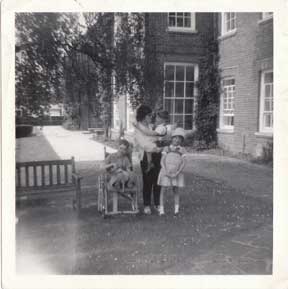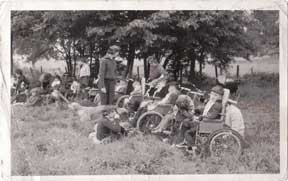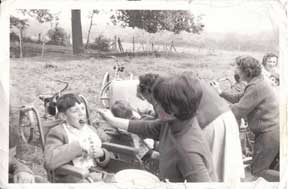You are here
- Home
- Conferences
- Conference 2008
- Cut Off: How we spent our time in a residential school
Cut Off: How we spent our time in a residential school
Sally French

My first job, from the age of 16 to 18 (1965 to 1967) was as an assistant housemother in a residential school for children with cerebral palsy who were also classified as being ESN. The school was run by the Spastics Society (now SCOPE). We lived in a manor house deep in the Sussex countryside where few 'outsiders' ventured. I was one of 14 house care staff who were employed to assist 55 children from 5 to 16. We were all resident and most of us were young with little or no training.
The school was researched in the late 1960s by Maureen Oswin in her book The Empty Hours. She compared it with the regime that children were subjected to in mental handicap hospitals and found much to recommend it. As I will show, however, it fell far short of child care practice which would be expected today.

In this paper I will show how the house care staff and the children spent their time in this residential setting. My talk will be illustrated with photographs and newspaper cuttings from this time. Some of the themes I will cover with regard to how time was spent are as follows:
- The strong emphasis on therapy at the expense of education and play.
- The effect of the rural setting and lack of transport on the children and house care staff.
- The hierarchical nature of the work force and the lack of team work.
- Fun times - picnics and outings.
- The isolation and insularity of the community.

As a 16 year old straight from school I was given considerable responsibility but no training. I do, however, regard this as one of the most formative periods of my life, a time which informed the rest of my working life and provided me with several lifelong friendships.
Contact us
About the Group
If you woud like to get in touch with the Social History of Learning Disability (SHLD) Research Group, please contact:
Liz Tilley
Chair of the Social History of Learning Disability (SHLD) Research Group
School of Health, Wellbeing and Social Care
Faculty of Wellbeing, Education and Language Studies
The Open University
Walton Hall
Milton Keynes
MK7 6AA
About the website
If you have any feedback or would like to report a problem with the website, please contact WELS-Research-Admin@open.ac.uk.